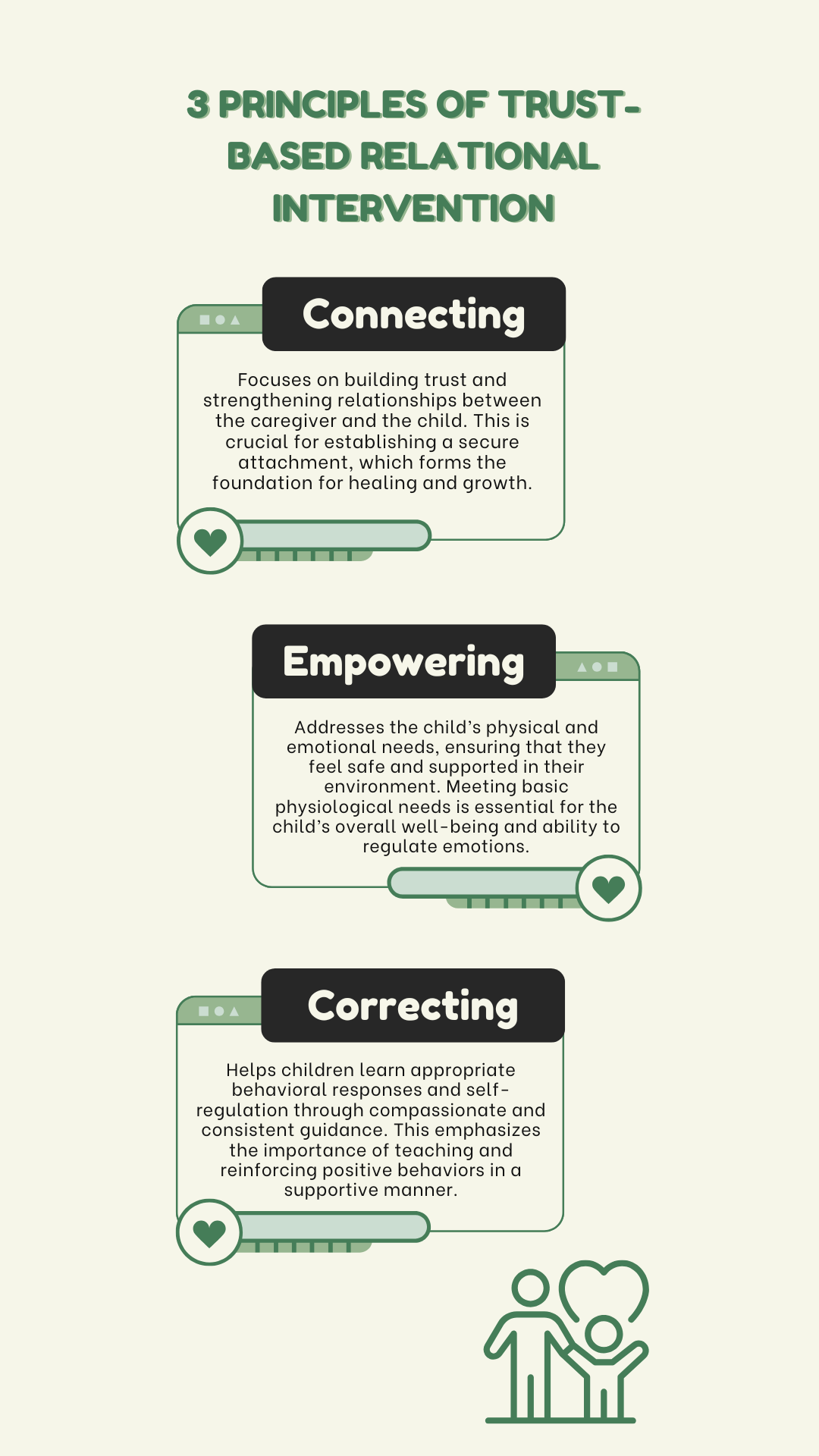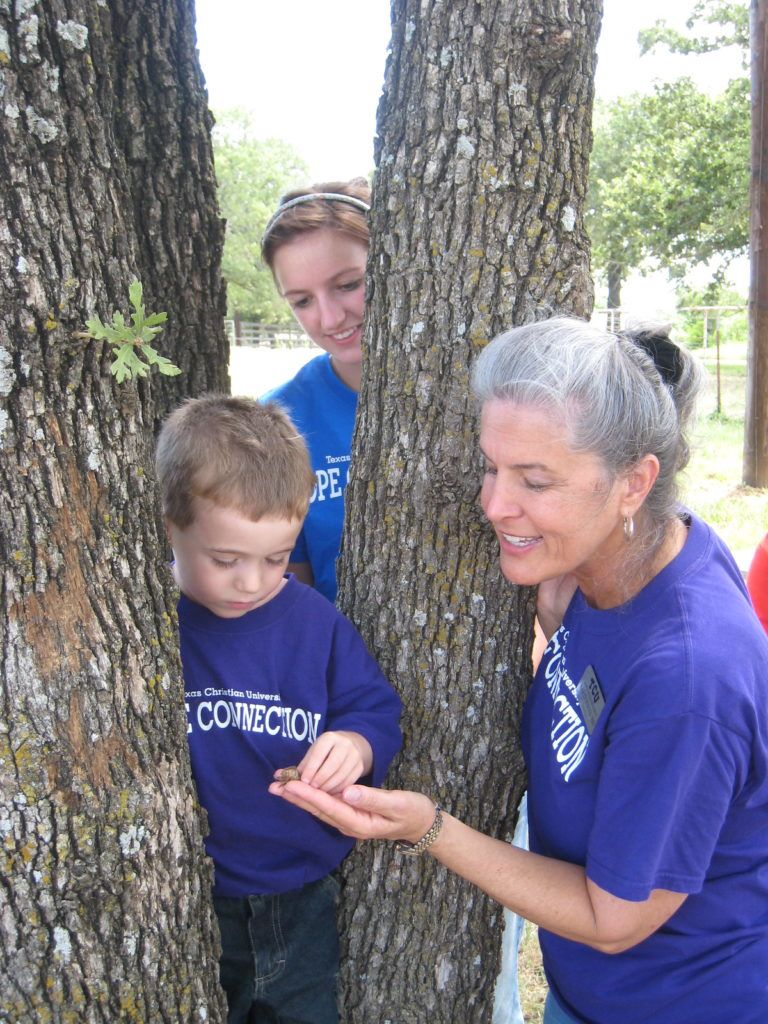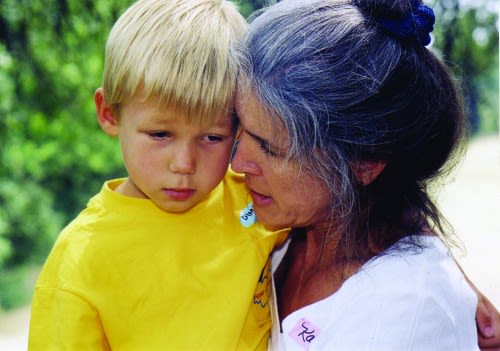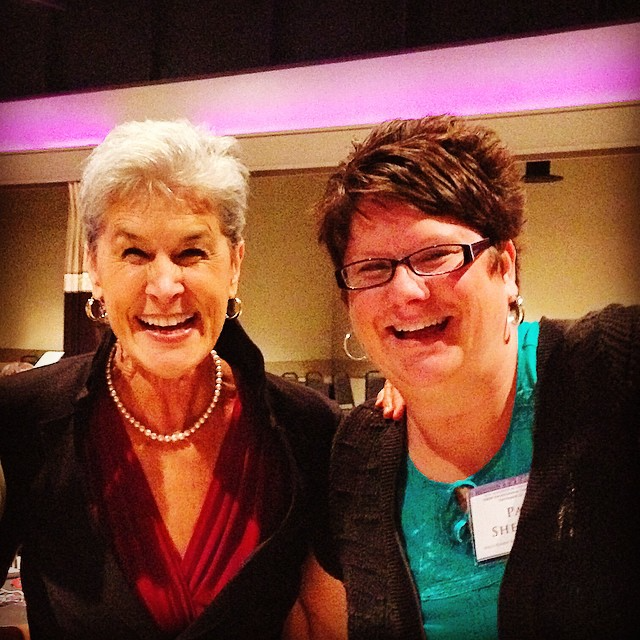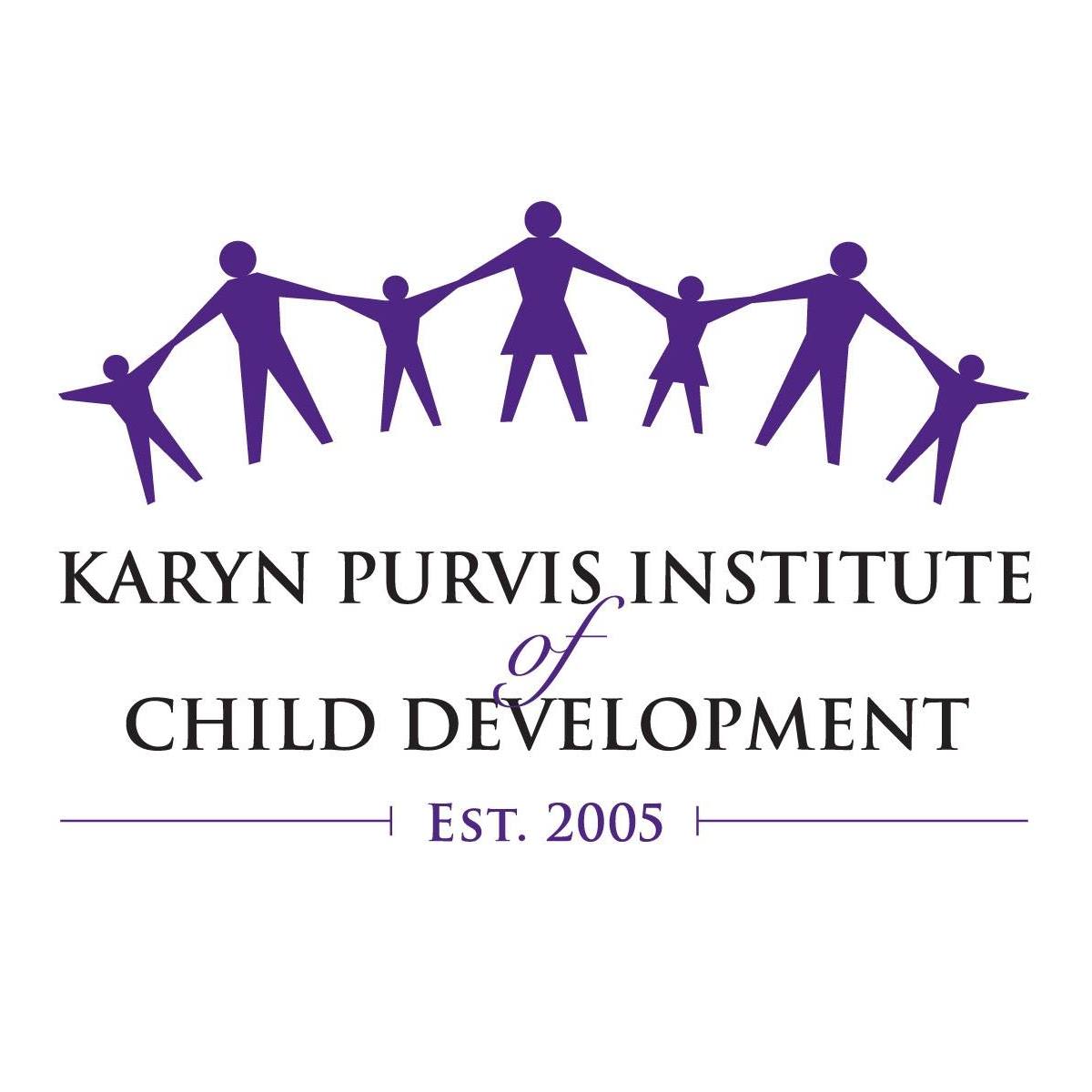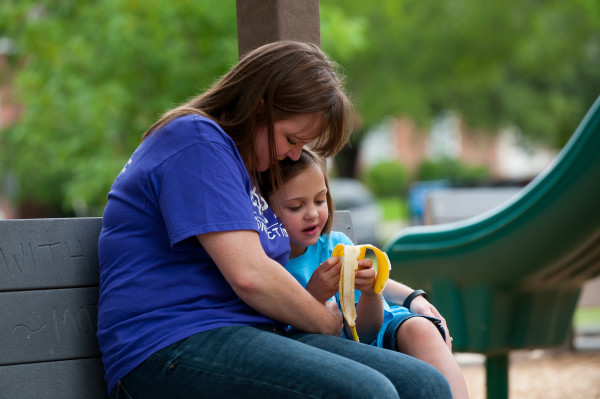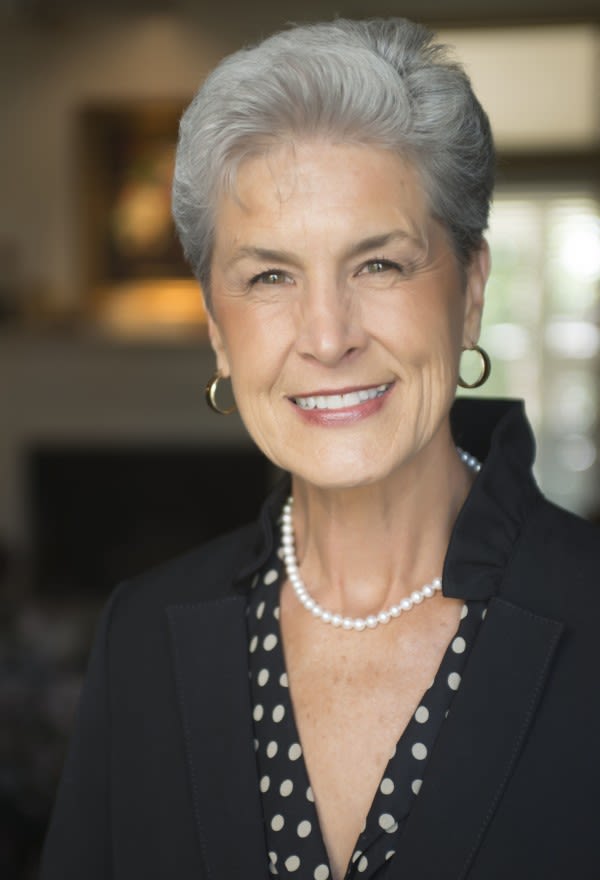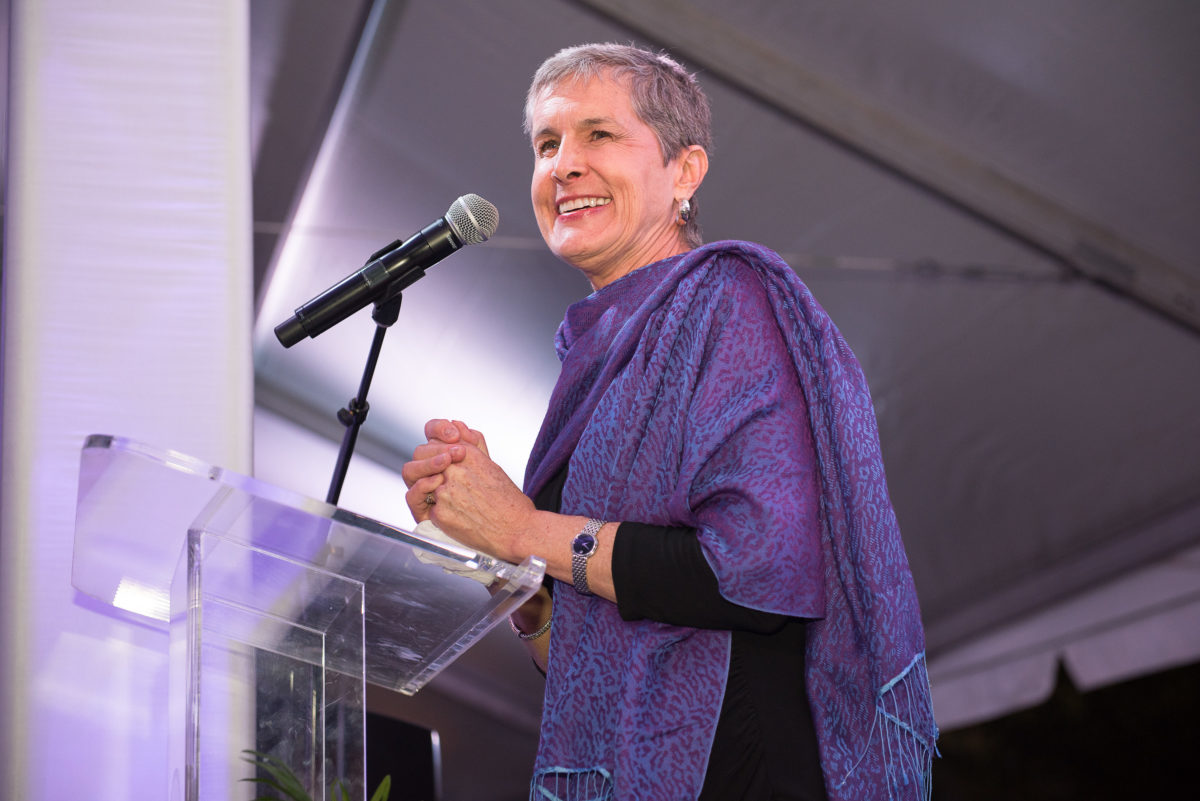Dr. Karyn Purvis left a legacy at TCU and in the field of child development
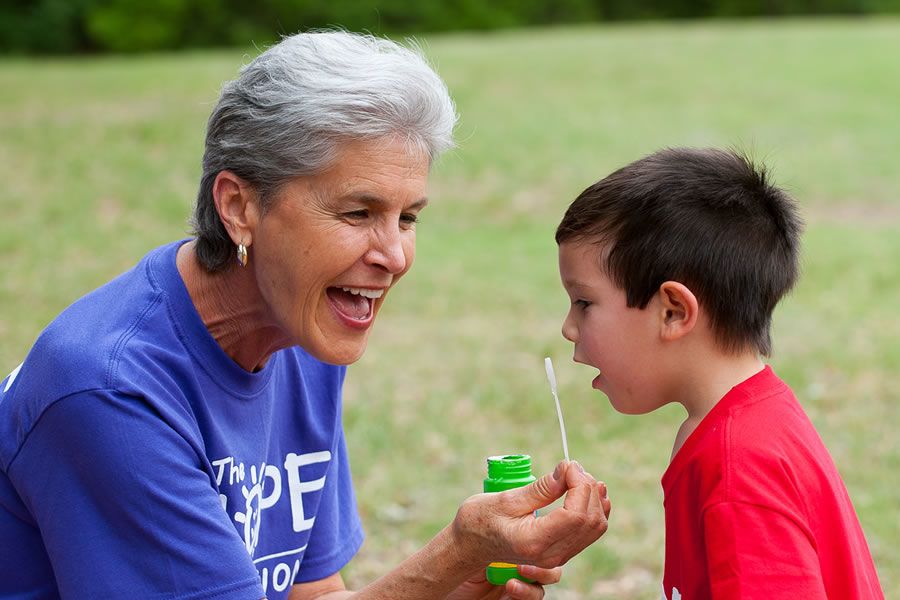
It’s been nearly 25 years since a doctoral student launched a camp for adopted children with developmental trauma.
Karyn Purvis, who earned her Ph.D from TCU, focused on addressing how negative events in childhood can imprint on the brain and body well into adulthood and how these effects can be mitigated. Purvis, who died in 2016, established a regimen for trauma-informed care for children.
“If I could tell you my dream for every child in the world it would be to imagine a world where the cry of every child is met by a loving compassionate adult.”
Over the years, her vision evolved from the Hope Connection to a legacy that addresses the complexities of developmental trauma and that extends well beyond Fort Worth.
Purvis, alongside her mentor, Dr. David Cross, created Trust-Based Relational Intervention, which is recognized internationally, as a way to help children with “relationship-based traumas” related but not limited to maltreatment, neglect, multiple foster home placements or institutionalization.
The holistic and multidisciplinary approach hopes to meet the root need of a child’s behavior, and then help them express the behavior appropriately. The evidence-based practice addresses the complex needs of children with significant childhood trauma through three principles: empowering, connecting, correcting.
The empowering principle addresses external and environmental needs of the child, along with the internal and physical needs of the child.
The connecting principle is described as the “heart and soul of TBRI” and focuses on the relational and attachment needs, promoting trust between the child and caregiver.
The correcting principle works on helping the child learn healthy self-regulation habits and disarm any fear-based behavior.
Emmelie Pickett, Purvis’ former assistant, said she was drawn to the connecting principle.
“Connection is everything – with children, with colleagues, in marriage, with family – all aspects of life,” said Pickett, a TBRI practitioner.
Dr. Karyn Purvis playing with a child at Hope Connection. Courtesy of the Karyn Purvis Institute of Child Development.
Dr. Karyn Purvis playing with a child at Hope Connection. Courtesy of the Karyn Purvis Institute of Child Development.
Dr. Karyn Purvis comforting a child at Hope Connection. Courtesy of TCU Magazine, spring 2016.
Dr. Karyn Purvis comforting a child at Hope Connection. Courtesy of TCU Magazine, spring 2016.
Hope Connection 2.0
TBRI is at the heart of Hope Connection 2.0. This revised version of the therapeutic camp is for every family member including the adopted child, adopted/biological siblings and primary caregivers. Meeting the needs of the entire family helps members better connect to each other and regulate behavior in the context of relationships, according to the Karyn Purvis Institute of Child Development.
The camp attracts families from across the country, but demand outstrips capacity.
Upper division child development majors serve as therapeutic buddies for the children; TBRI practitioners and mentors work as family coaches, therapeutic group leaders and parent trainers.
The KPICD’s 2023 annual report highlighted the camp and said it gives TCU students and TBRI practitioners the opportunity to apply their knowledge and gain “hands-on experience working with children who have histories of abuse, neglect and/or trauma.”
The playful, yet structured, sensory rich environment helps children develop awareness of their emotions and learn how to better express them, according to the report. Pickett describes the children’s transformation over camp as “outstanding” and “heartening.”
TBRI outside of the Karyn Purvis Institute of Child Development
Similar camps have been started across the country and also internationally in over 65 countries.
Pam Shepard became a TBRI practitioner in 2014 after training under Purvis. She is the director of the Journey of Hope, a TBRI-based family camp in Illinois created in 2017.
Shepard also uses TBRI as supervisor of clinical services at Holt International, a non-profit child welfare organization, and provides “weekly ongoing outpatient therapy services to anyone connected to adoption.”
A licensed clinical social worker, Shepard said she uses TBRI with her clients everyday at work. For example, she often uses “engine plates” and other calming tools to help her younger patients with dysregulation. The plates are crafted to reflect different emotional states and help children learn self-regulation.
“TBRI is such an important part of my job because it's just a way of ‘being.’ Once you have learned it and lived it, it's just part of you,” Shepard said.
She said TRBI also influences her personal parenting style. Her daughter is on the autism spectrum and Shepard said she has been using TBRI with her daughter since she was 4-years-old.
“Learning the why behind her behaviors was everything to our relationship and for our relationship,” Shepard said.
She added that seeing beneath the behavior of children has completely changed her outlook on life.
Pam Shepard with Dr. Karyn Purvis. Courtesy of Pam Shepard.
Pam Shepard with Dr. Karyn Purvis. Courtesy of Pam Shepard.
TBRI has been implemented in other programs like the Court Appointed Special Advocates (CASA) for children. CASA of South Mississippi implements TBRI in multiple sectors including juvenile justice, youth courts, and child welfare. It also partners with the KPICD and was recently inducted as a TBRI Ambassador Organization.
Immerse, a foster care agency in New Zealand, is also a TBRI Ambassador Organization. Immerse grounds each of its services in TBRI including caregiver training, school training and professional training. The agency uses TBRI to drive systematic changes and offer hope and healing to those in the “most challenging circumstances.”
(From L to R) Dr. David Cross, Emmelie Pickett, Dr. Casey Call and Dr. Karyn Purvis together in 2013. Courtesy of Emmelie Pickett.
(From L to R) Dr. David Cross, Emmelie Pickett, Dr. Casey Call and Dr. Karyn Purvis together in 2013. Courtesy of Emmelie Pickett.
Karyn’s impact
TCU created the Institute of Child Development in 2005 to advance the work of Purvis and Cross. After Purvis died in 2016, it was renamed the Karyn Purvis Institute of Child Development.
The team at the KPICD is committed to honoring and continuing Purvis’ work. They have, and will continue to bring healing to children and families through “training, education and research,” said Dr. Casey Call, the institute’s associate director of education.
“If I have planted, and farmed the soil well, those who come after me, and after them and after them, will be wiser and more well-equipped and more able to continue our mission, which is not rhetoric for our institute. We truly are learning to change the world for children.”
Call met Purvis in 2007 while observing the Hope Connection camp. Call planned to pursue a doctoral program in psychology, but after watching Purvis interact with children she said she realized that she wanted to pursue the same type of work.
“I had tears running down my face watching her with kids because I thought this was how all children should be treated,” Call said. “She was kind and respectful, and you could tell she could see the value, worth, and preciousness of all that she interacted with.”
She said she accompanied Purvis to several home programs and watched as Purvis worked with individual families. Call said it was “inspiring.”
Because of Purvis and TBRI, Call said she now views everything from an attachment theory lens to better understand people and relationships in a more meaningful way.
Pickett said Purvis' work taught her how to be mindful in every interaction she has with a child.
“If I’m not connected to the child in front of me, we won’t get far,” said Pickett, who works as the KPICD communications coordinator.
She credits Purvis’ success to her passion of helping children who had experienced trauma.
“She was a person of very strong faith and felt that her work was the calling placed on her life,” Pickett said.
After Purvis died, numerous tributes recognized the impact of her work. Focus on the Family Canada released one through their Waiting to Belong initiative, with Wendy Kittlitz, the senior vice president, recalling how Purvis incorporated scripture into her work.
“There was always a great theological depth to her understanding of how people function relationally, and that shone through no matter which audience she was addressing,” Kittlitz said. “In a world where the word ‘precious’ is sometimes used in mocking ways, she imbued it with real meaning: she saw each one as precious, special, of high worth. You felt valuable in her presence."

